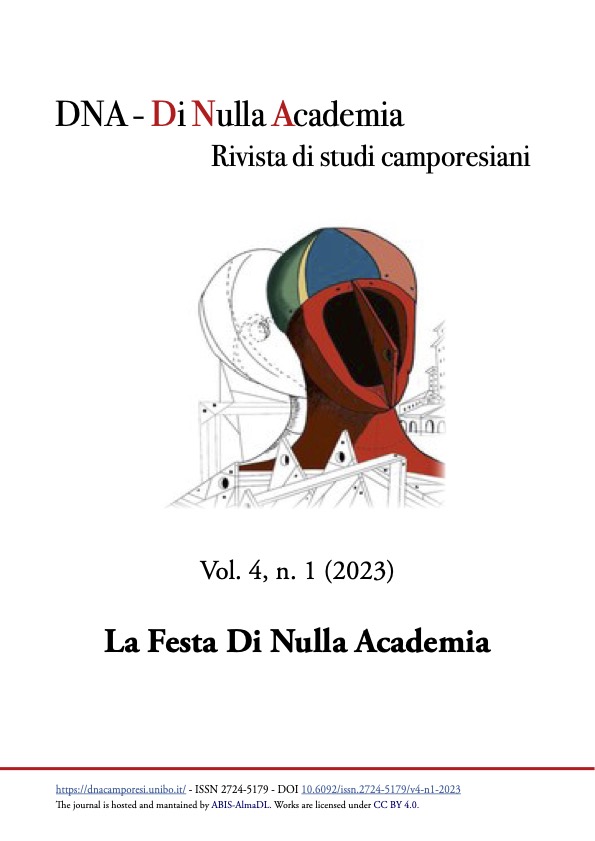Il corpo nel teatro di Machiavelli (Mandragola e Clizia)
DOI:
https://doi.org/10.6092/issn.2724-5179/18509Keywords:
Italian Renaissance Theater, Machiavellian Realism, Corporeity, Body as a Detector of Sentiments, Women’s RepresentationAbstract
The essay highlights how corporeality in the characters of Mandragora and Clizia is the form that Machiavellian realism takes in theatrical works. All the characters relate to a corporeal reality that determines their thoughts and actions, and that acts as a revealer of their cynicism or of their actual love. Conversely, the non-corporeality of Clizia, never present on stage, allows us to highlight her total reduction to an object disputed among four men; while for the elderly protagonist, the mockery suffered on his own body makes him aware of the absurdity of the conquest of his just post-adolescent pupil.
Downloads
Published
2023-12-06
How to Cite
Marchand, Jean-Jacques. 2023. “Il Corpo Nel Teatro Di Machiavelli (Mandragola E Clizia)”. DNA – Di Nulla Academia 4 (1). Bologna:21-36. https://doi.org/10.6092/issn.2724-5179/18509.
Issue
Section
Body: Humors, balms, poisons and monstra
License
Copyright (c) 2023 Jean-Jacques Marchand

This work is licensed under a Creative Commons Attribution 4.0 International License.





